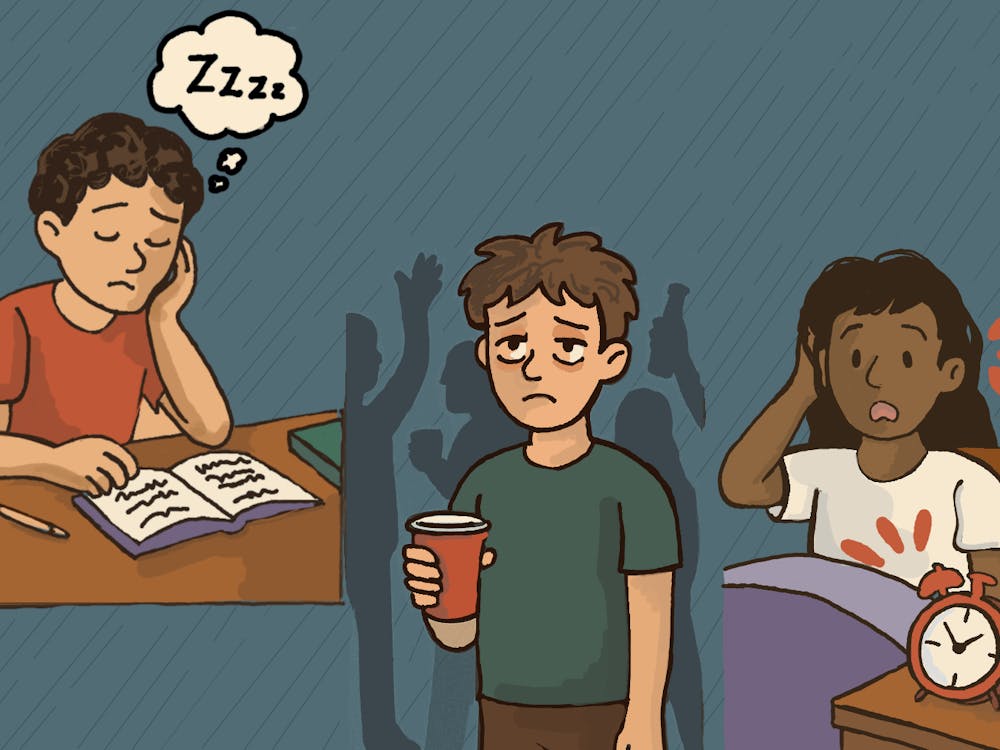In an introductory email at the beginning of the semester, my TA for a Batten class about humanitarian crises implored us to visit her in office hours. She not only offered to provide stimulating conversations about topics ranging from economics to French, but she also suggested that visitors could use office hours to talk about the one and only thing that anybody really wants to talk about anyways — “The Bachelor.”
Never one to turn down an offer I can’t refuse, I immediately responded to her email with a quick debrief of and response to that week’s most recent episode. Before I knew it, I found myself participating in a weekly ritual where my TA — whom I still have never actually met in person — and I emailed back and forth, indulging in America’s favorite guilty pleasure. Though many of our emails focused on the fact that not even “The Bachelor’s” dramatic producers could make Arie less dull than a rock, we also drew connections between the show and academics, discussing the relationship between the show and the humanitarian principles learned in class — or more commonly the lack thereof. And though the season is now over, I know that I will always have somewhere to turn for witty and sarcastic Bachelor commentary in the future.
It’s crazy for me to think that not too long ago, I never would have had the guts to send the initial email to start an exchange like that. During my first few years at the University, I thought of TAs and professors as if they came from another planet. I attended class, I listened to what they had to say — and maybe even asked a question or two — and then I tried my hardest to avoid eye contact with them whenever I happened to run into them around Grounds. Now that I am a TA myself, however, I realize that teaching assistants don’t come from Pluto. No, on the contrary, the line between student and teacher is thinner than you could ever imagine.
What, you don’t believe me? Take my role as an undergraduate economics TA, for example. The only thing that separates me from my students is the fact I have a special set of notes that helps me guide them towards the important material in the course. Yes, I previously took the course and performed well in it, but that was three years ago! I am relearning the material right alongside my students whenever I teach it. Heck, some TAs even teach classes outside of their traditional disciplines. So all of this is to say that you shouldn’t view your TA as an intimidating, all-knowing god worthy of fear. Instead, think of them as just another friend coming along with you on your educational journey — well, just another friend with a special set of notes.
Another strange concept about student-TA relationships is that, had these people met in a different context, they very well could have formed real friendships. Because of our society’s widely-accepted power dynamic between student and teacher, we seem to believe that there is no place for friendship — or, often, anything even approaching it — in that academic space.
A couple of months ago, I ended up at the same party as one of my students because we are in the same organization. Instead of allowing the situation to be awkward, she came up to me, stuck out her hand, and said, “Let’s keep this professional.” Ever since, we have been friends. All it takes to break the ice and, more importantly, break down the framework of superiority and inferiority between student and teacher is a simple sentence like that.
Now, don’t misunderstand me — I’m not saying that by failing to get to know your TA you are letting your future best friends slip through your fingers. Rather, I’m arguing that we could all benefit from a reframing of the relationship between TA and student — instead of viewing your TA as your superior, I challenge you to approach them as an equal. You might be surprised to find that you two are not as different as you may have thought.







